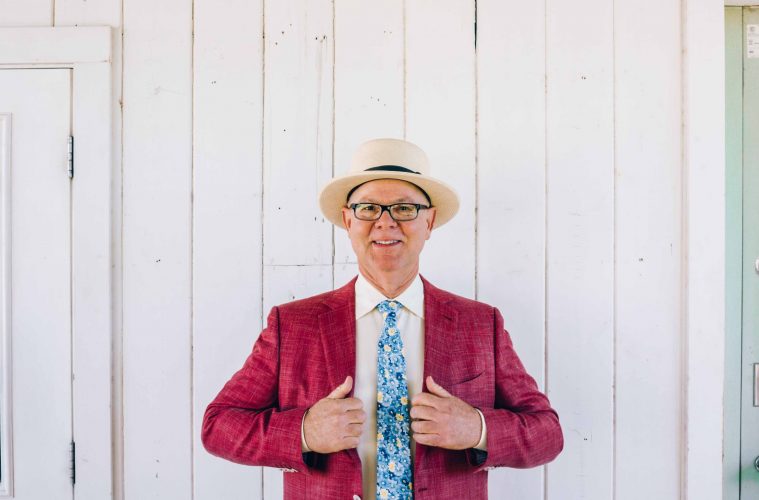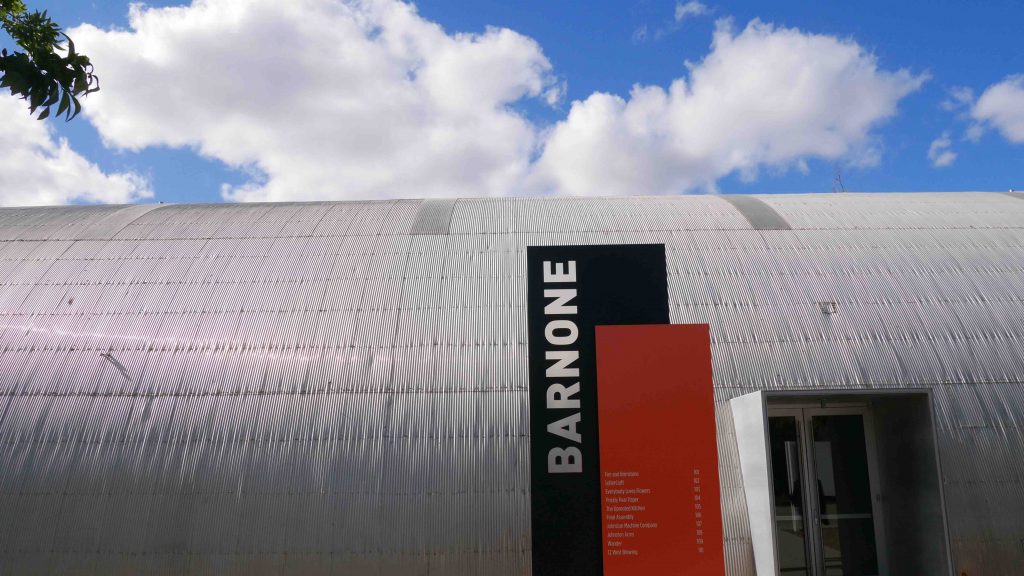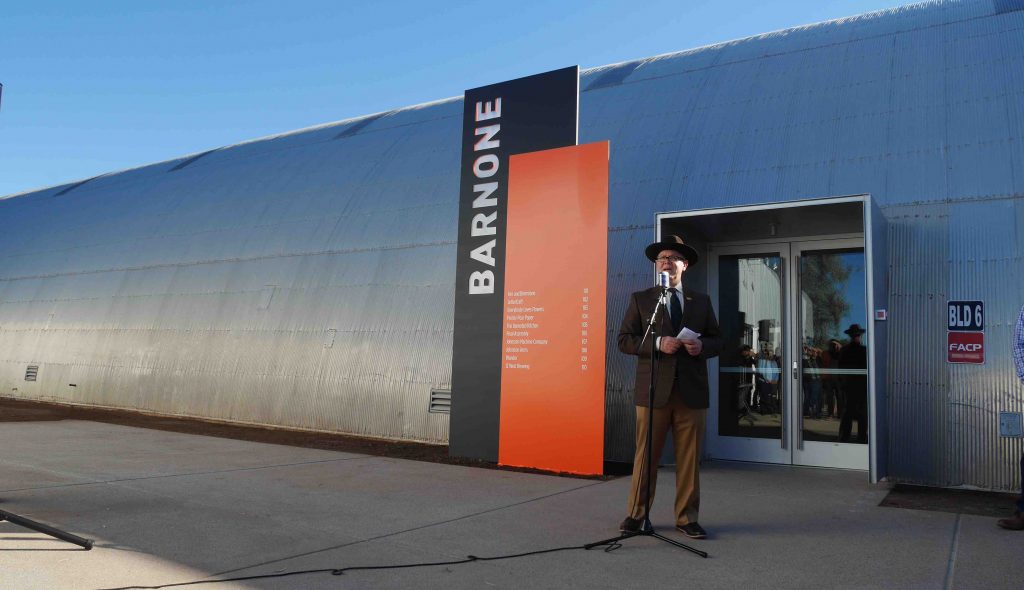
Things are changing rapidly in Gilbert, AZ, and the once dusty farm town miles from the hub of central Phoenix has become an interesting urban center of its own. Downtown Gilbert was like any other place in Main Street America, a couple of rows of old buildings along a main thoroughfare, tapering off into farms and fields. Primarily known for agriculture, Gilbert was once considered the hay capital of the world due to the prominence of alfalfa grown there. Now it is the fourth-largest metropolitan area in Arizona, behind Phoenix, Tucson and Mesa, with a population approaching 300,000.
In some ways, Gilbert still has that wholesome, small-town feel, which is what attracts so many young families; thus, it has dodged the fate of many towns across America filled with boarded-up storefronts and folks who’d rather shop at Walmart. Downtown Gilbert offers an interesting array of shops and especially restaurants catering to those looking for something a little different from the fast food and chain dining options that tend to service suburban communities.
Joe Johnston was raised on a farm in Gilbert and is certainly one of the pioneers who helped revitalize its downtown, with Joe’s Real BBQ, his first restaurant foray in the area in 1998. Later, in 2008, his Liberty Market, which retains the name of its original 1935 building, was an immediate success despite opening in a deep recession. Both of these establishments cater to a certain sensibility regarding local products, craftsmanship and a return to honest values. Thanks to Johnston’s early efforts, Gilbert’s Heritage District has become one of the Valley’s liveliest dining destinations, featuring such locally grown favorites as Postino, Lo-Lo’s Chicken & Waffles, Joyride Taco House, Zinburger and Clever Koi, to name a few that have migrated eastward.
Perhaps the centerpiece of Johnston’s achievements is the residential and commercial community called Agritopia, built on land that was once the Johnston family farm. Agritopia, which began construction in 2001, is a neo-traditional neighborhood without block walls between properties. The homes have front porches, and urban agriculture is at its core. There is a working farm on site (The Farm at Agritopia) that grows dates, olives, herbs and seasonal vegetables. The Johnston family home, built in 1967, has been converted to Joe’s Farm Grill, which is essentially an elevated burger stand, taking a casual grill menu and enhancing flavor profiles by using fresh local ingredients, including Arizona-raised beef for their burgers and produce grown at the surrounding farm.
The newest thing happening at Agritopia is a project that opened late last month called Barnone. When asked whether it is “barn one” or “bar none,” the publicist said it is meant to be ambiguous. This new collection of restaurants, shops and studios is housed in a barn that was built in 1950. The Quonset hut structure is skinned in reclaimed aluminum from melted-down WWII aircraft. For the longest time, it was literally just a barn at the family farm. But Johnston saw potential beyond anyone’s imagination. Now 10 businesses inhabit the original barn structure, and two others are housed in newly constructed outbuildings. The commercial spaces are smaller to accommodate a more artisan/maker approach. In its literature, Barnone describes itself as a “craftsman community.”
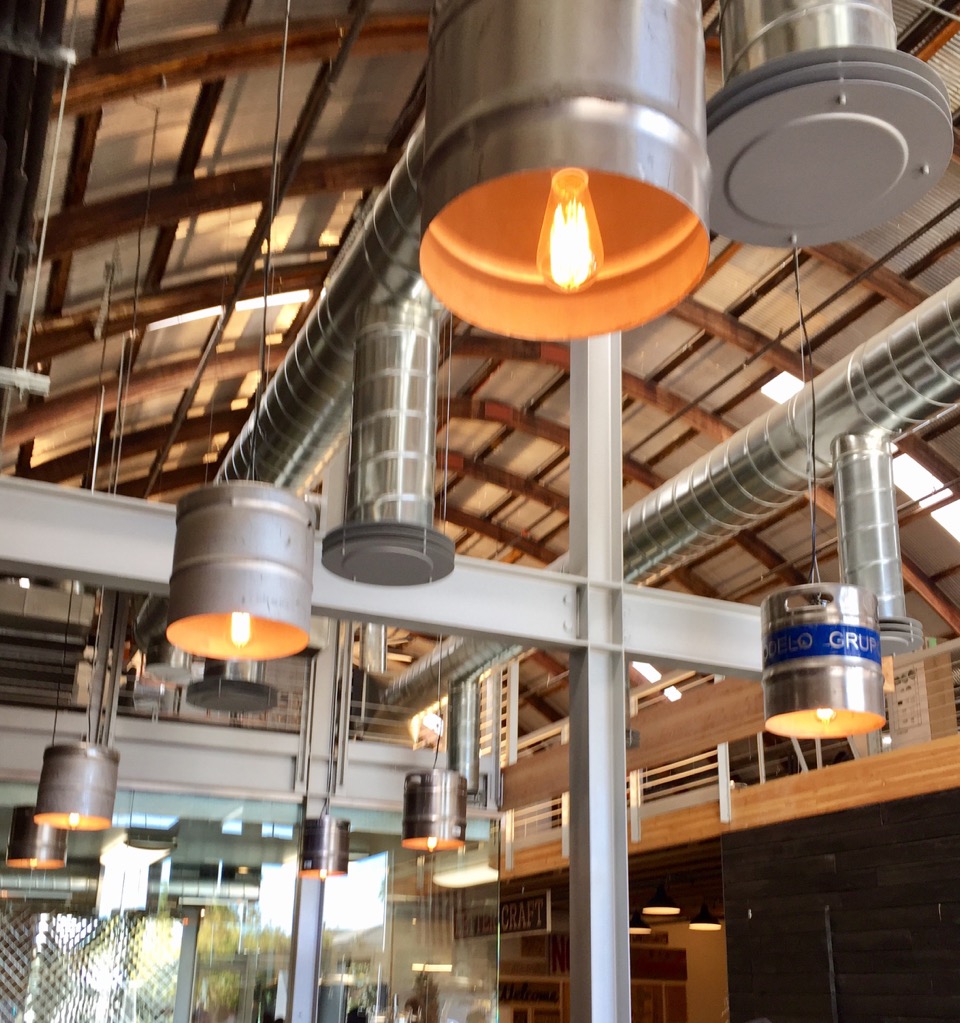
Johnston had to fight long and hard with Gilbert city planners to get the project approved. He insisted on keeping the original arched trusses and exposed corrugated aluminum visible, which meant no interior insulation. Johnston seems confident in the building’s ability to stay cool during our brutal summer months, and each of the interior spaces has its own climate-control system. “I remember from my childhood that this place always stayed somewhat cool even in the summers,” says Johnston. He hired architect Jack DeBartolo and builder Caliente Construction to bring the project to life. This particular team (owner, architect and builder) has managed to pull off an impressive feat, revealing the beautiful industrial qualities of the original structure, while making the interior spaces eminently habitable.
The scale of the individual shops at Barnone is reminiscent of the former Union Shops at Biltmore Fashion Park, which closed earlier this year. But overall Barnone seems slightly larger and more diverse:
Fire & Brimstone
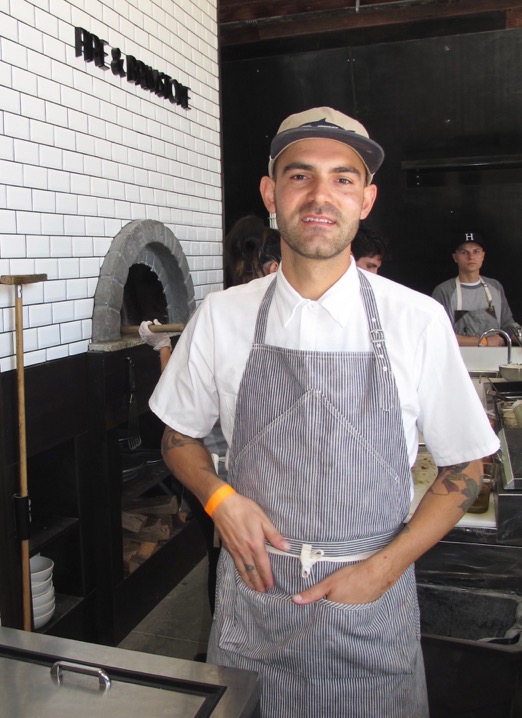
Fire & Brimstone is community-focused restaurant featuring local ingredients cooked over an open flame or in a wood-burning oven. While pizza is in the spotlight here, the eatery also features farm-fresh salads and a rotating seasonal menu, including fire-grilled meats and seafood. Founder and chef James Johnston (son of Joe) cut his teeth working in the family restaurants and on the farm, gaining experience literally from the ground up. This is what real farm-to-table cooking is all about: ingredients pulled straight from the soil at Agritopia and then washed, prepped and cooked. Food has become all about trends and creative complexity, but Johnston’s mission is to veer away from that and reestablish a connection between farm and community.
LetterCraft
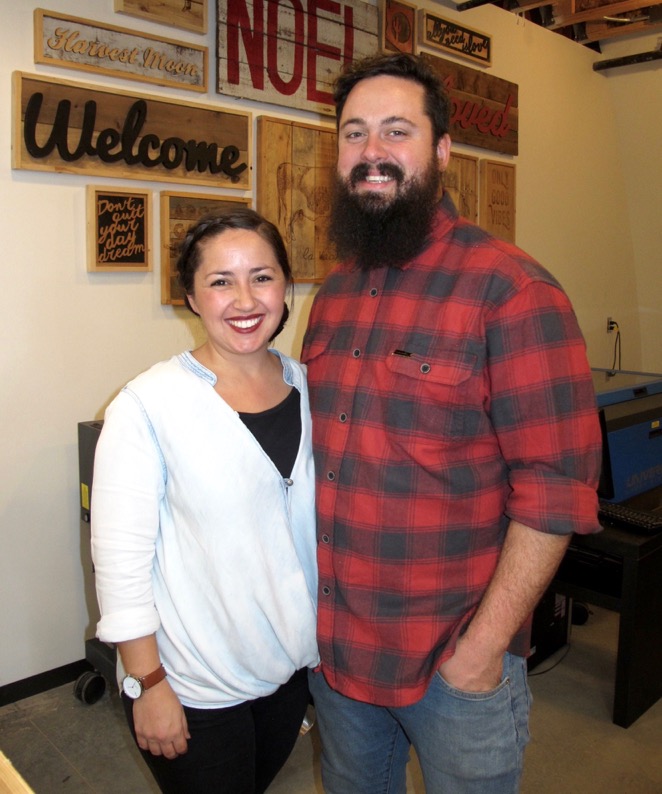
LetterCraft is Brandon and Katie Young, a husband-and-wife team dedicated to making reclaimed wood-burned decor and laser-cut wood gifts. They produce handmade signs, walls, furniture, coasters, ornaments, key chains, magnets, puzzles and more, all out of repurposed wood. LetterCraft specializes in custom orders and branding, working with clients to create the perfect piece for a wedding or event, home or office. Brandon and Katie are teachers who needed a creative outlet, and they have found it in working together to make local, handcrafted wood products and custom artwork.
Everybody Loves Flowers
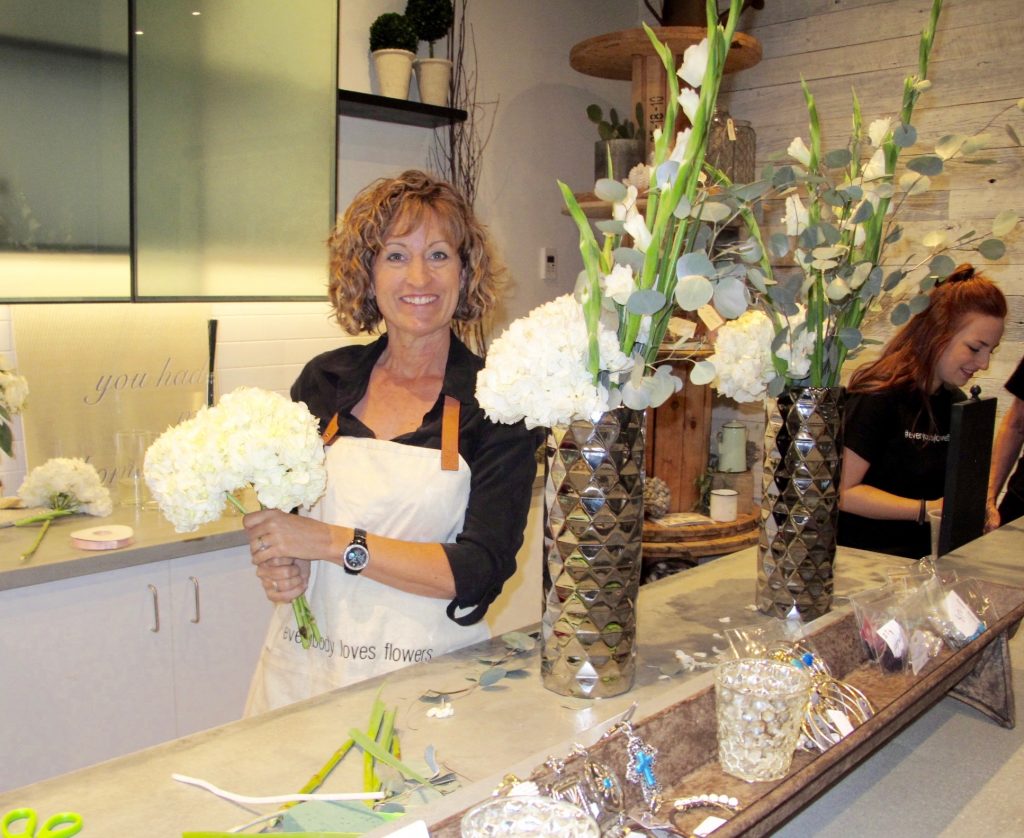
Arizona’s desert landscape may not have flower stands dotting every street corner, like Paris or San Diego, but Mireille Helm believes that, especially in the desert, everybody loves flowers. Helm, founder and operator of Everybody Loves Flowers at Barnone, blends her longtime love of flowers with a passion for educating clients and creating unconventional, beautiful floral arrangements that add a much-needed pop of color to our neutral desert terrain. Aside from the work she does for weddings and special occasions, Helm also offers curbside flower pickup, floral soiree classes and elements of home décor.
Prickly Pear Paper
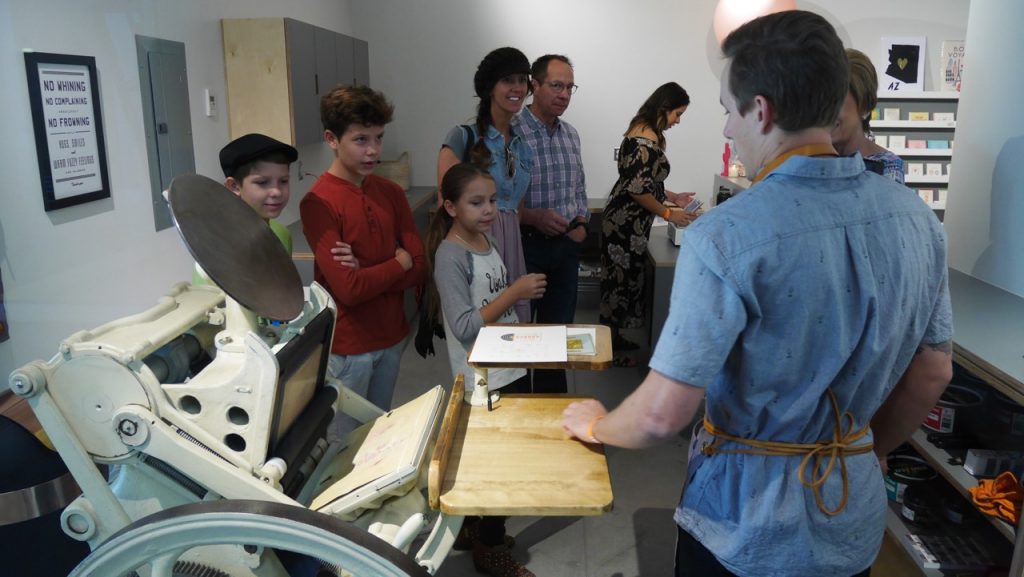
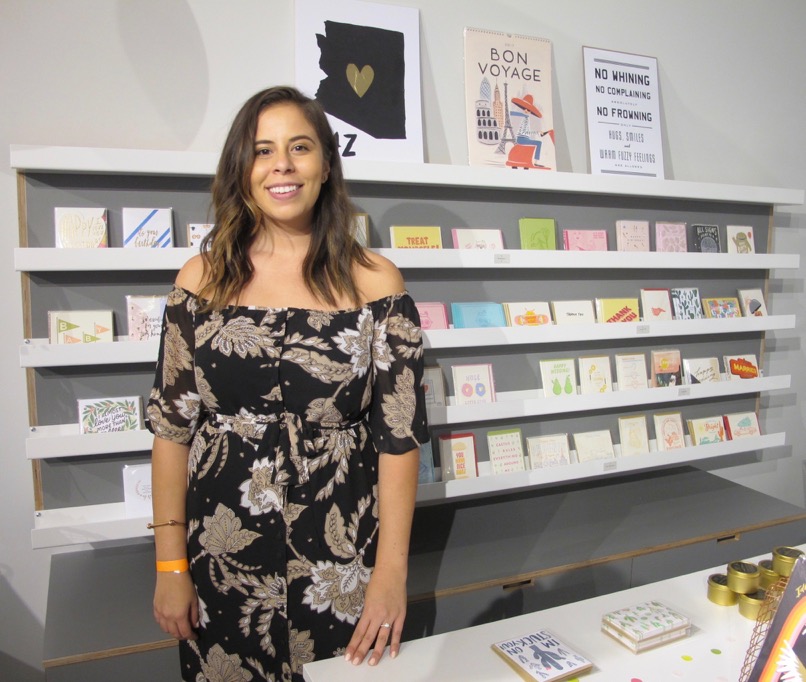
Founded in 2016 by Mark Johnston and Lauren Elliott, Prickly Pear Paper combines a passion for graphic design with fun, adventurous cards and stationery designed to make people smile. As partners in love and life, Johnston and Elliot appreciate the small things, like brightening someone’s day with a witty card or fun piece of artwork. From start to finish, Prickly Pear Paper designs, produces and hand prints unforgettable invitations for big life events, like weddings. They use a Kelsey King Jobber letterpress, which leaves impressions in the paper, making it stand apart from modern digital printing. They also carry a wide array of curated stationery, greeting cards and gifts.
The Uprooted Kitchen
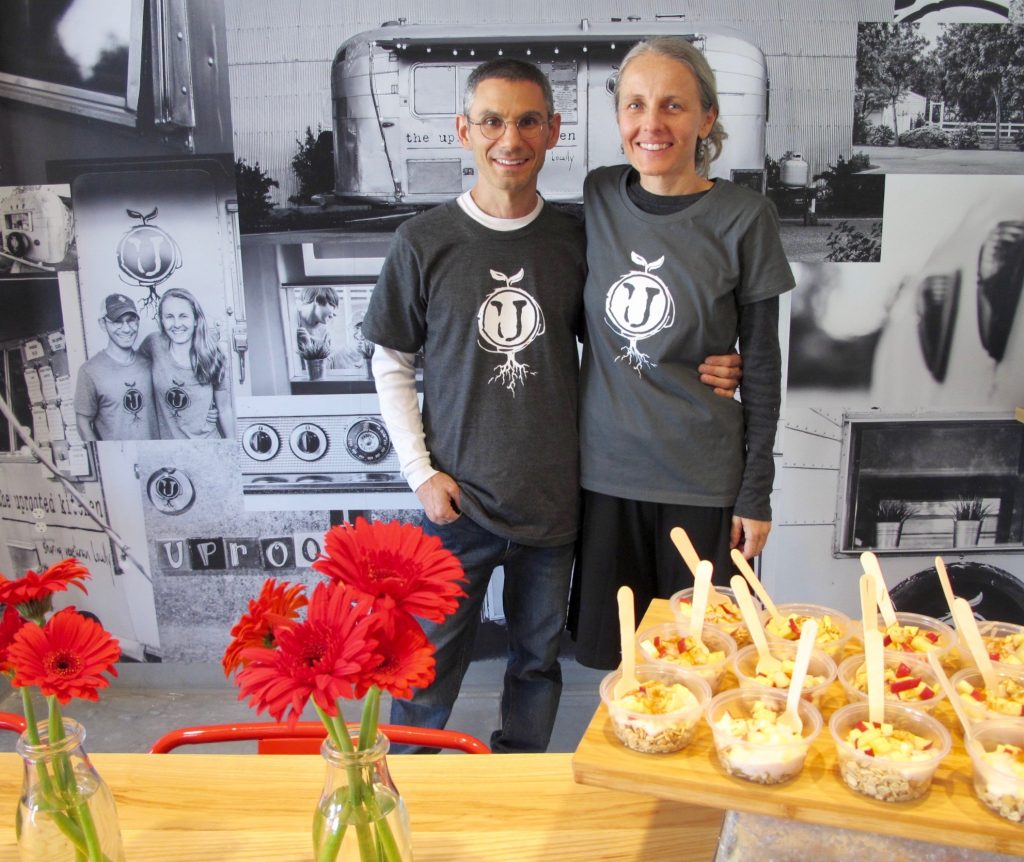
Everything created in The Uprooted Kitchen is plant-based and organic. Chad and Erin Romanoff want to show that eating healthy foods from the earth can be can be attainable and affordable. Their open kitchen further reinforces that point, allowing guests to witness their meals being crafted. The Romanoffs want their guests to eat happy, knowing exactly what is going into their bodies. The restaurant can accommodate guests with 24 seats indoors and 24 outdoors. Chad and Erin got their start in 2012 serving out of a 1968 Avion travel trailer transformed into a food truck, and the interior décor of their Barnone space is inspired by those humble beginnings, with lots of aluminum and natural materials.
Johnston Machine Co.
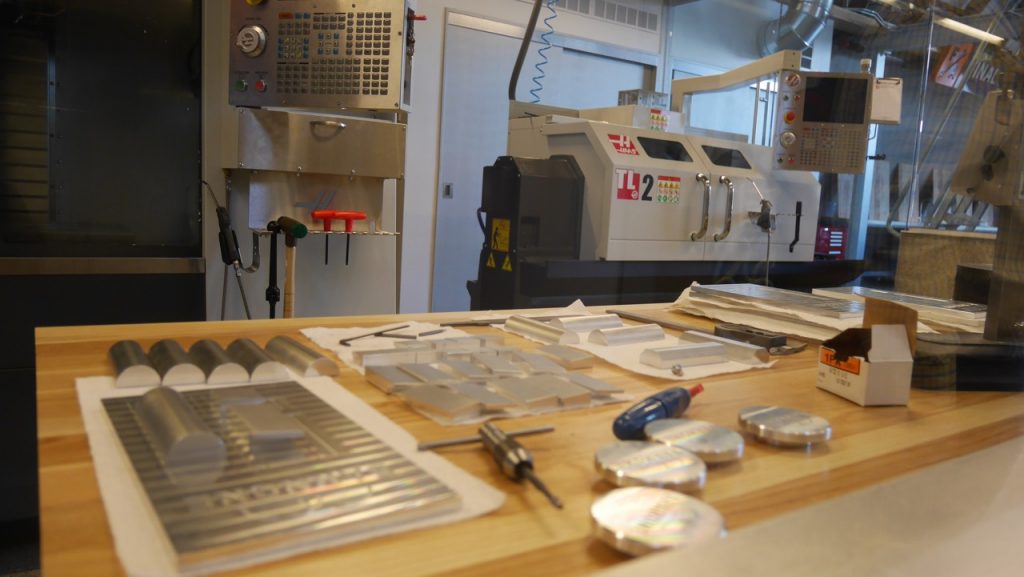

Unbeknownst to many, Joe Johnston has several engineering degrees from Stanford University (bachelor’s degrees in electrical and mechanical engineering, and a master’s in industrial engineering), and he worked in the field for seven years. In 1989, he launched his first concept, the wildly successful Coffee Plantation on Mill Ave. in Tempe, which in 1992 alone served over a million people. Needless to say, Johnston’s engineering career took a backseat to the string of successes that would follow, including his visionary Agritopia community. Johnston Machine Co. is an opportunity for Joe to get back in touch with his more scientific side. The space is almost completely filled by two large prototyping machines (American made, Johnston is quick to note). I’ve heard that Johnston’s lineage is tied to the Hobart family, famous for its commercial food mixers, so it makes sense that Johnston Machine specializes in developing “tools and equipment to support the culinary arts, intended for the professional kitchen and serious amateur.” Also check out the exquisite terrazzo flooring and wainscoting in this machine shop. It looks like Johnston may have blown the budget on it.
Final Assembly
Directly adjacent to Johnston Machine, Final Assembly is a “place for assembling machines, a place for people to assemble and a place for creative ideas to come together.” For lack of a better description, Final Assembly is like an informal meeting space without walls. It would be a great place to put some pieces of a machine together on the large industrial table or to have a brainstorming session around that same table. The place is fully wired for sound and projection, so I could see some seriously creative assemblies happening here.
Johnston Arms
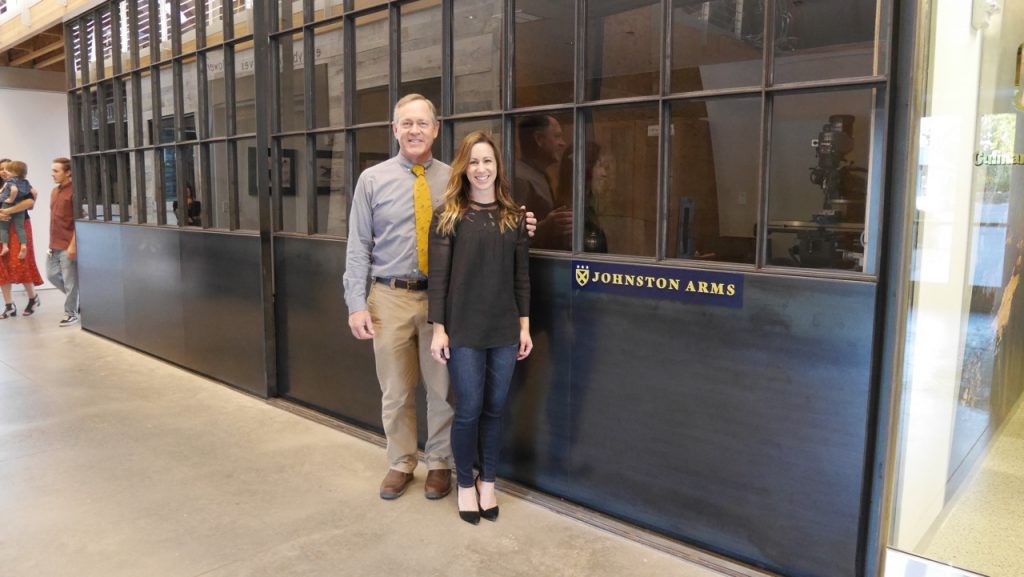
Steve Johnston’s identity as a craftsman is tied to his lifelong love of hunting and the outdoors, which evolved into an interest in firearms. But he gives credit to local saddlemaker Rocky Minster, whose philosophy and talent inspired his craft. Johnston loves to produce fine firearms and often wonders what kinds of stories they will inspire. For instance, if he could grab a drink with the gunsmith who made the pair of 100-year-old English shotguns he owns, what would he have to say about his process? And did the gun’s previous owners ever imagine their shotguns would still be in use today, in the Arizona desert? Steve makes his firearms with the hope that they, too, will stand the test of time and become family heirlooms that can be cherished and talked about for generations.
Wander
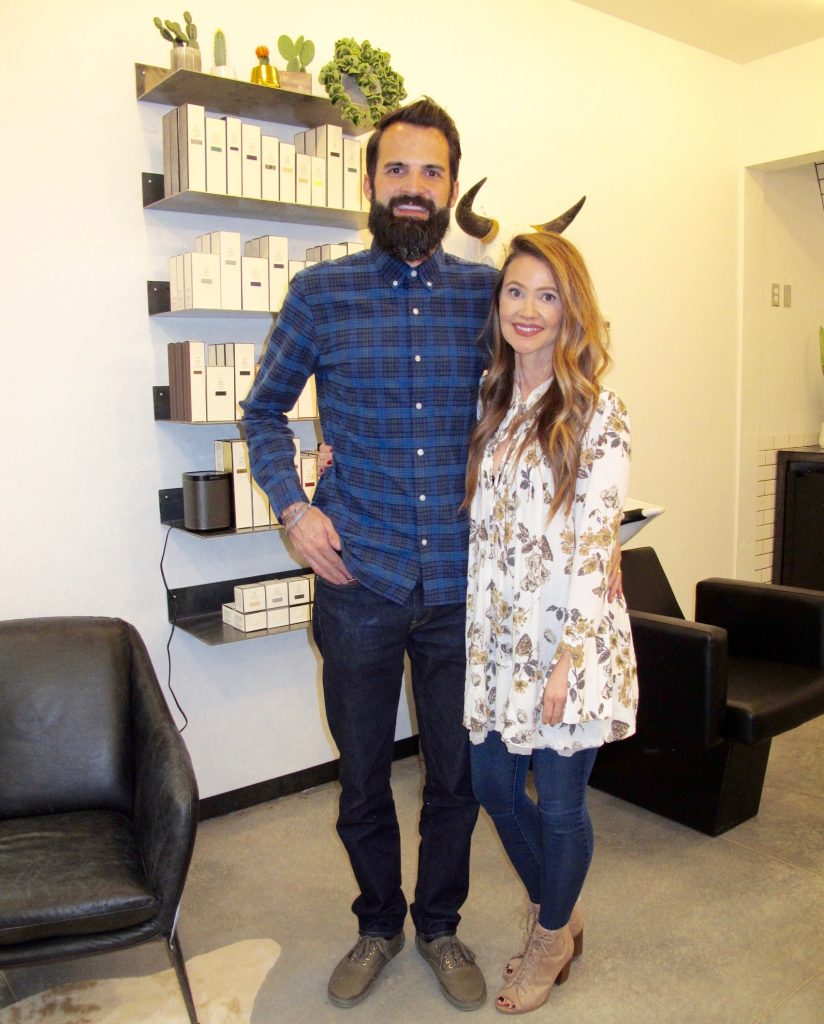
Shelly Miera has been styling hair since she was a young girl, and now her dream of creating her own salon is a reality. Wander is place for both men and women to come share their journeys and adventures while they indulge in out-of-this-world salon services. Wander’s intimate space at Barnone features only two hair stations, so clients will never get caught in the crowd, and one-on-one personal service is key. The space feels hip but comfortable, with just the right modern décor touches.
12West Brewing Co.
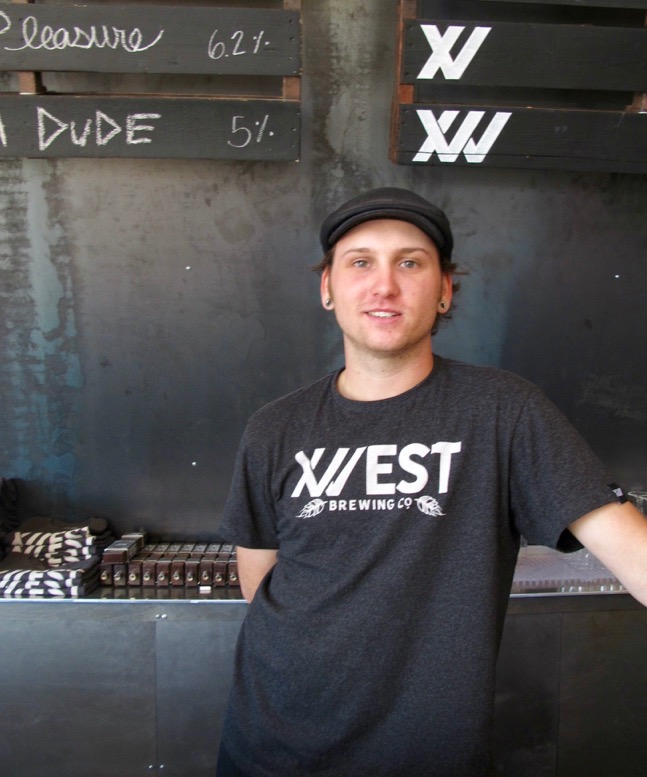
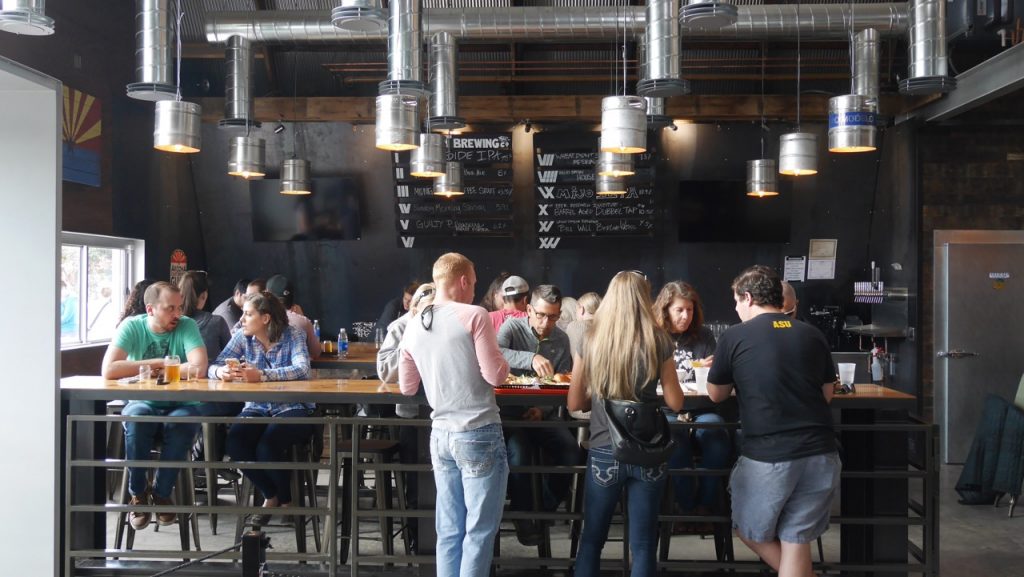
Noel Garcia of 12West Brewing believes beer is a catalyst in creating community. After more than a decade of home brewing and craft beer industry experience, he and Bryan McCormick founded 12West in 2016. Now, they want their space at Barnone to reflect their passion for craft as much as it reflects the community binding the world of beer together, and to accommodate everyone, from the longtime craft beer aficionado looking for an inventive hop-heavy brew, to the newbie sipping a balanced wheat beer. “I really want the taproom to be a space where you can sit and people-watch or come and socialize,” says Garcia, who draws his flavor inspirations from a combination of the culinary and beer worlds. “This is going to be a really big year for craft beer,” Garcia says. “I’m excited to bring that east.”
Garage East
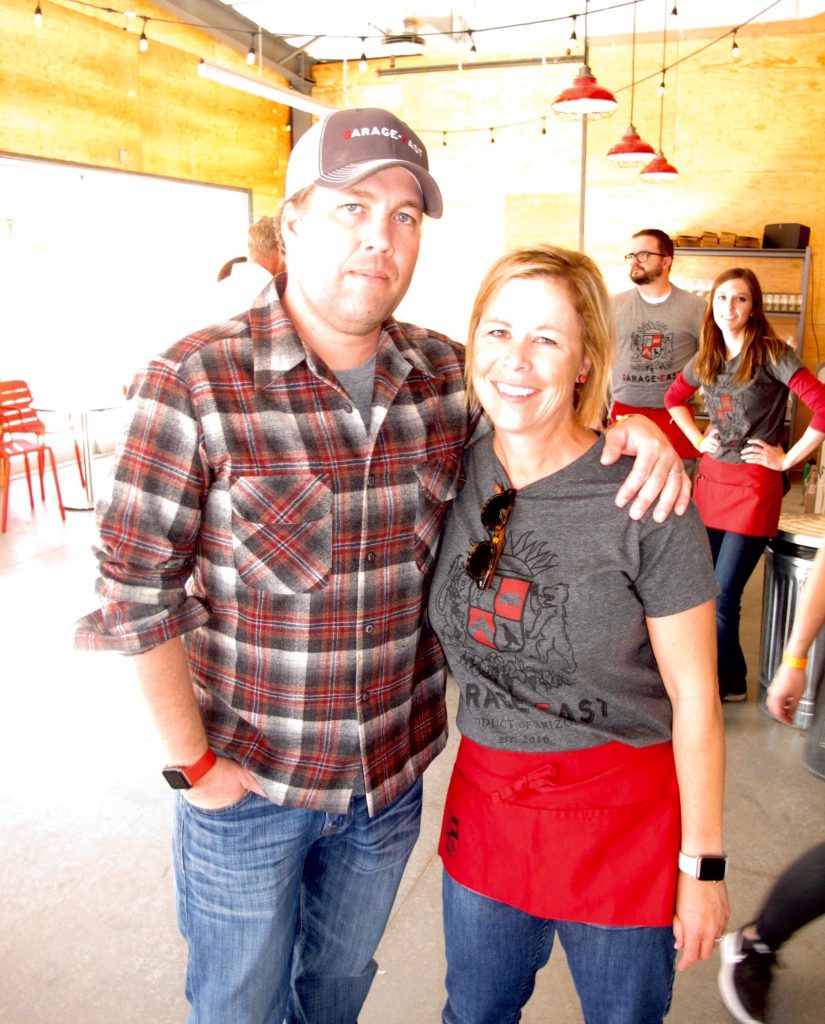
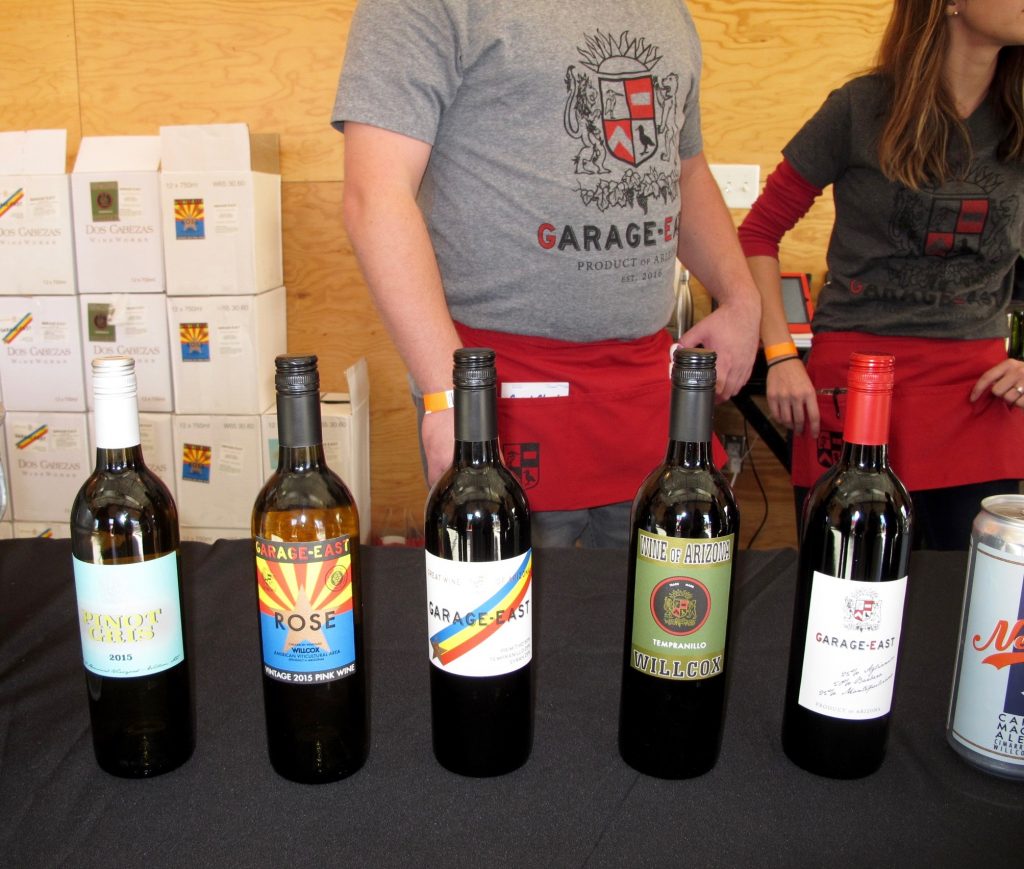
Todd and Kelly Bostock of Dos Cabezas WineWorks in Sonoita have joined Brian and Megan Ruffentine to create a Gilbert-based winery that produces exclusively from Arizona grapes. The Garage East team has taken a common passion for wine and turned it into a one-of-a-kind artistic experience. “A lot of things we’ll be making are small batch and utilize traditional winemaking styles,” says Ruffentine. This is not a traditional winery, though wine production is a part of what they do. You will also find a broad range of agricultural preservation and exploration endeavors going on through fermentation. Since wine production happens on site, guest can taste vintages straight out of the barrel during different stages. Also, guests can bring bottles of wine purchased here to the surrounding restaurants and enjoy them with their meal. This is a place to come to with friends and enjoy the pioneering spirit of Arizona in a glass, bottle or to-go growler.
The Farm At Agritopia
The freshly built outbuilding is the new home for the operations of the organic farm at the center of Agritopia, perhaps the best known urban farm in the state. This will also be location of a 24-hour cashier-free farm stand, where community members can pick up farm-fresh produce on the honor system.

